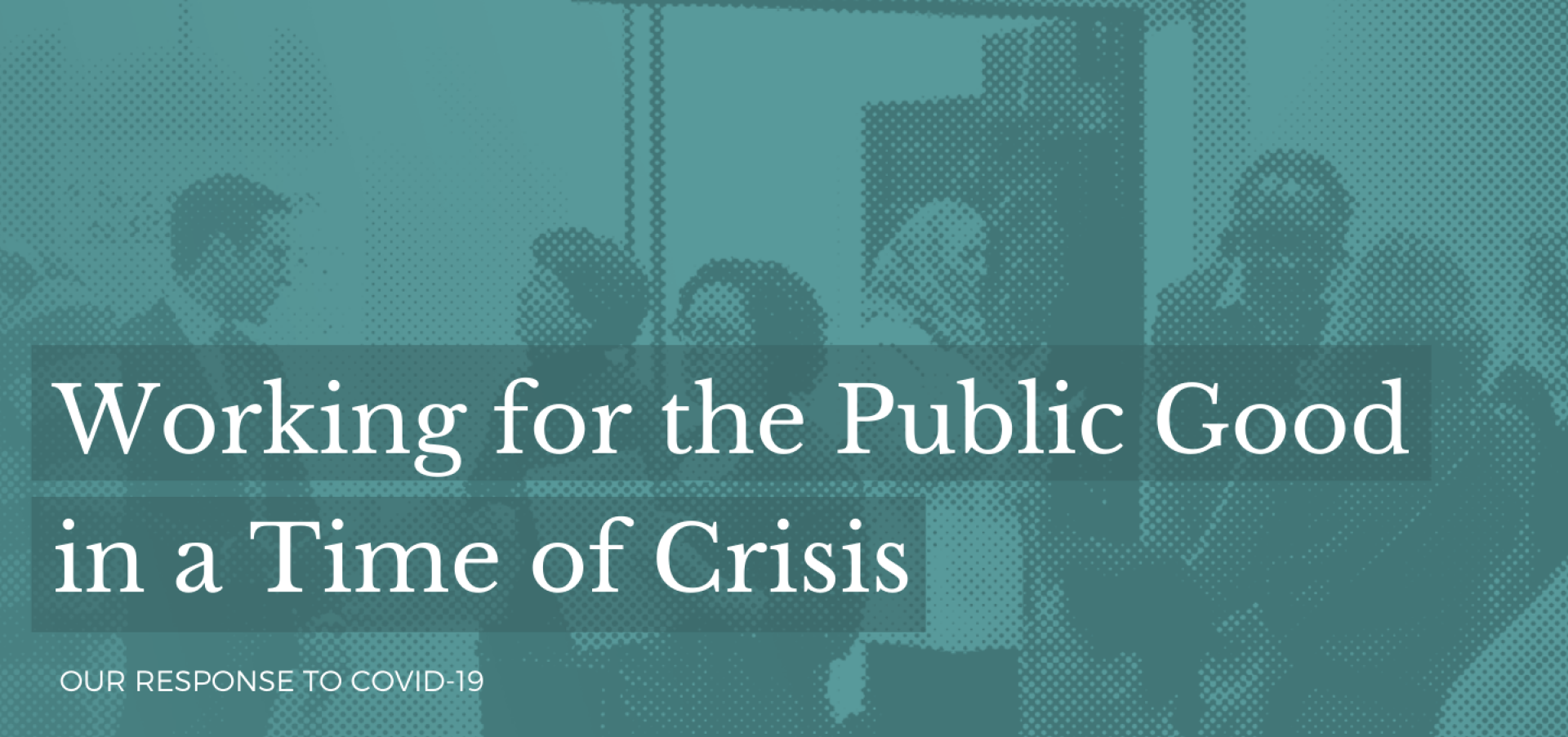News Take Action

Working for the Public Good in a Time of Crisis
| Date: | March 25, 2020 |
| Share: |
At Partnership for the Public Good, we have refocused our work to respond to the Coronavirus crisis and the many urgent needs it raises across health, housing, and economy. Our partners are addressing these impacts head-on, and we’re listening to their concerns and challenges to ensure that necessary policy changes are passed and implemented locally.
CRISIS RESPONSE
Despite the unquestionable urgency of keeping people healthy and safe, implementation of these changes has not been straightforward. Here are a couple of examples from the last week:
- Evictions were suspended statewide, but eviction warrants were still being carried out locally. Some of our legal partners responded swiftly to successfully stop evictions in Buffalo and Erie County. But we’re now hearing of cases where some landlords have the gas, electric, or water turned off – effectively forcing tenants to move out. We’re working again with our housing and legal partners to address these informal, illegal evictions.
- Water shut-offs for nonpayment were suspended by Buffalo Water, but residents already living with their water turned off had difficulty getting their service restored. Together with a group of our partners, we advocated for Buffalo Water to officially announce that residents can have their water restored at no cost – but more work is needed to speed up the process and get more residents their water back.
At this time when staying at home and washing your hands is the universal guidance, no resident of this City of Good Neighbors should be forced to move or made to live without running water.
POLICY DEVELOPMENT
As a network of 305 community groups, we’ll continue our founding mission of supporting our partners in the weeks and months ahead. We’re engaging our partners – especially those providing services on the frontlines of this crisis – to hear what obstacles they face in meeting the basic needs of residents. We’re amplifying their insights with local government officials and departments, developing policy solutions for short-term emergency response and long-term recovery, and ensuring the government response is adequate to the challenges at hand. We've posted a working list of policy priorities, including:
- Policies that were already adopted for the duration of the crisis, and which need to be implemented and monitored (ie. Evictions suspended);
- Policies that need to change urgently now to meet basic needs (ie. Rent relief);
- Policies to consider for long-term recovery (ie. Pro-worker, High Road labor standards).
Many of these policies were already priorities on our 2020 Community Agenda, including reducing evictions, reversing water shut-offs, improving language access and inclusion, and making healthy food available to our children. This crisis is magnifying the importance of equitable public policy and exposing the structural problems that persist in our health systems and economy. It’s never been clearer that policies that protect the most vulnerable among us are good for everyone.
PUBLIC KNOWLEDGE AND CONVENING
We’ve added a COVID-19 resource center to the Buffalo Commons – our shared online hub for public knowledge and engagement with Cornell ILR Buffalo Co-Lab. This page will be continually updated, featuring:
- Locally-focused information on the crisis and the related work of researchers in Buffalo Niagara;
- An opportunity to submit your research requests to PPG staff and our Buffalo Commons researcher network;
- Resources to help nonprofits and community groups continue critical work at this time, from how to manage teams remotely to how to run a digital advocacy campaign.
- Ways to take action to advance critical policy changes.
We will continue our Buffalo Commons convening and capacity-building workshops in the weeks ahead, virtually. We’ll host two virtual community conversations in April:
- Policy Change in the Time of COVID-19: Taking Stock of Implementation;
- Community-Based Research Needs for the COVID-19 Crisis and Recovery.
Watch this list for the specifics, or email buffalocommons@cornell.edu to be notified directly.
COMMUNITY GROUPS IN THE LEAD
Finally, we are also collecting stories and examples to document how community groups—as they always do—are stepping up to fill the gaps in our systems which this emergency has so clearly magnified and exposed. From block clubs and long-term neighborhood organizations like PUSH Buffalo and CoNECT (Community Network for Engagement, Connection and Transformation) to rapidly forming coalitions like Buffalo Mutual Aid and Seeding Resilience, community groups are providing incredible leadership in this time of crisis. Long-term recovery should center their needs, insights, and leadership too.
